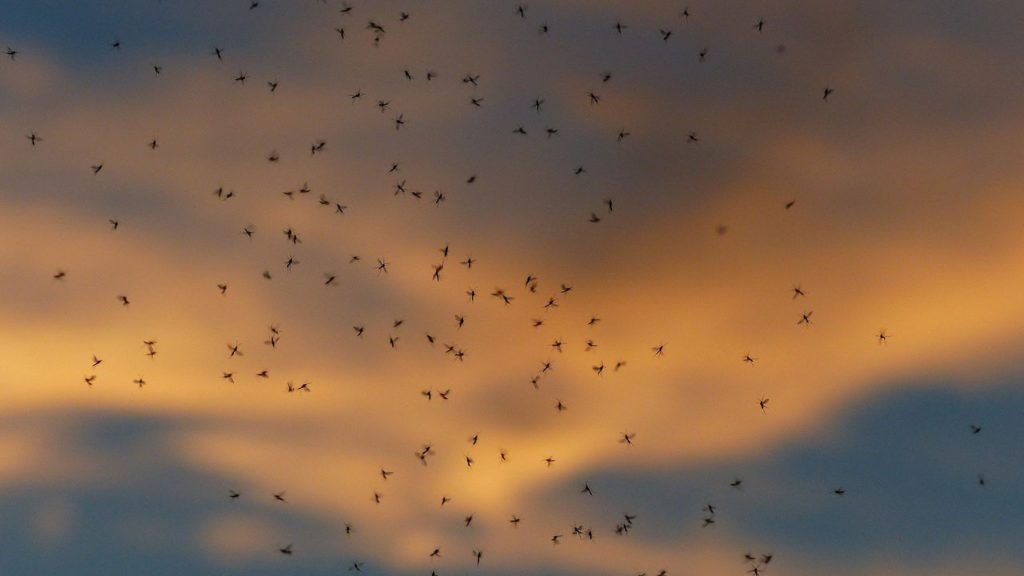A Ghent city councillor has called on the Flemish government to provide emergency help in tackling a plague of midges around the river Scheldt in the city.
Midges, or Ceratopogonidae, are a group of biting insects that contains more than 5,000 different species. In normal times both males and females feed on plant nectar. However at mating time, the females begin to feed on the blood of mammals, and that includes humans.
The insects are tiny, between one and four millimetres long, but their jaws are strong enough to pierce human skin, and their saliva contains an irritant compound to stop the clotting of blood at the tiny bite-site. The result for the person attacked is itchy and painful bites.
The midges can also be a disease vector for illnesses caused by bacteria and parasites.
Thanks to the so-called Sigma Plan for the River Scheldt, the low-lying river banks that are home to the midges will disappear in five years or so, in an effort to prevent flooding (although the plan has run into one legal obstacle just this week).
City councillor Stijn De Roo (CD&V), however, would rather not wait that long. He is asking the Flemish government to provide pumps which would move the midges away, while making is harder for them to breed: a solution for present and future.
The pumps are expensive to operate, he admits – €450 a day while they are working – but the situation is approaching a critical phase.
Basically, the pump force water into the sediment in the river, stirring it up and forcing the midge larvae into the stream, where they will flow downstream, away from the breeding area.
"In addition, we must of course monitor whether the pumps are working effectively," said De Roo. "If they don't function properly, the midges can spread again."
And the problem is not particular to the summer season.
"We also have to deal with a midge plague in winter, so we have to get rid of them even then. And that can only be done by allowing more water to flow through the Scheldt."

